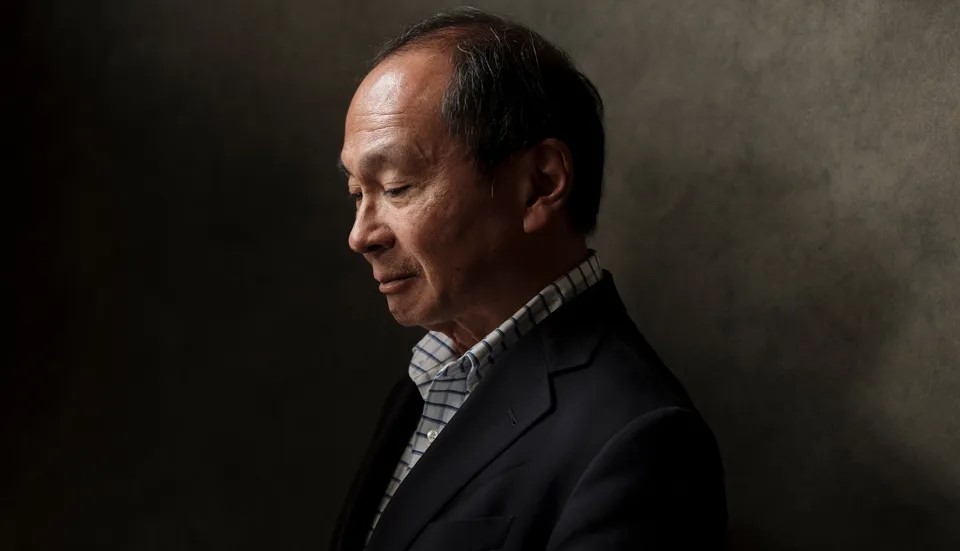He argued that weak countries are the source of problems such as terrorism and drug trafficking: Who is Francis Fukuyama?
Fukuyama became famous all over the world with his article "The End of History" (1989). Later, he published his work "The End of History And The Last Man" in 1992. He argued that the history of ideas ended with liberal democracy being accepted as humanity's last form of government.

Japanese-American political scientist Yoshihiro Francis Fukuyama was born in Chicago in 1952, the son of a Protestant preacher. He completed his undergraduate education at Cornell University and his doctorate at Harvard University. He worked as a Middle East expert and Deputy Director General in the Office of Policy Planning of the US Department of State. He participated in the Egypt-Israel Talks in 1981-1982 as a member of the US delegation.
He worked at Rand Corporation, one of the CIA's brain organizations. After completing his master's degree in political science at Harvard, he served as a member of the political science departments of many research institutions. Just before the Gulf War; In 1989, he joined the U.S. State Department policy planners as its first regular Middle East expert. He subsequently became vice president of European political-military relations.
Francis Yoshihiro Fukuyama (born October 27, 1952) is an American political scientist, political economist, international relations scholar and writer. Fukuyama is best known for his book The End of History and the Last Man (1992), which argues that the worldwide spread of liberal democracies and free-market capitalism of the West and its lifestyle may signal the end point of humanity's sociocultural evolution and political struggle and become the final form of human government, an assessment met with numerous and substantial criticisms.
Fukuyama became famous all over the world with his article "The End of History" (1989). Later, he published his work "The End of History And The Last Man" in 1992. He argued that the history of ideas ended with liberal democracy being accepted as humanity's last form of government. He discussed economic development and social collapse in his works "Trust" (1996) and "The Great Disruption" (1999).
In his book "State Building", he argued that the source of problems such as global terrorism, poverty, and drug trafficking are weak countries, and he put forward the state-building model for this. Fukuyama undertook studies that laid the groundwork for US policies on academic platforms.
Fukuyama works in different organizations and journals. He was the editor of the "Journal of Democracy" for a while together with Huntington, one of the prominent political scientists of the post-1990 period.
The End of History Thesis
Francis Fukuyama, a Japanese-American political scientist, argued that what happened with the end of the Cold War during the dissolution of the Soviet Union was not a transition to a new phase of history, but the end of history itself, and that the final point in the evolution of humanity was reached with the universalization of western liberal democracy. Fukuyama; claimed that the ideal of liberalism, which has triumphed in the intellectual sense and consciousness, has still not been completed in real life, and therefore there may be conflicts between the states living at the end of history and the states living in history, but now all changes will be one-way and towards liberalism.
By embracing the Hegelian understanding of the “end of history,” Fukuyama attempted to prove the truth of what Hegel said in 1806 and to conclude that all efforts to transcend liberal thought (especially Marxism) after the French Revolution of 1789 were “deviations in the normal course of evolution” of human thought and spirit. has worked. Fukuyama said: “The problem of history was brought to a conclusion with the French Revolution. That is why, in the two centuries that followed, the principles of this revolution were not surpassed either politically or philosophically. The subsequent historical events are different results of this revolution. "Fascism and communism, which emerged as important alternatives that shook our age, could not overcome the principles of the French Revolution."
The unipolar world order that emerged at the time when the thesis was put forward and the uncertainty caused Fukuyama's views to occupy the public for a while. Fukuyama's thesis both delayed the intellectual resistance that might arise against the unipolar world order and formed the basis of the "Clash of Civilizations" thesis that would later be put forward by Huntington.
